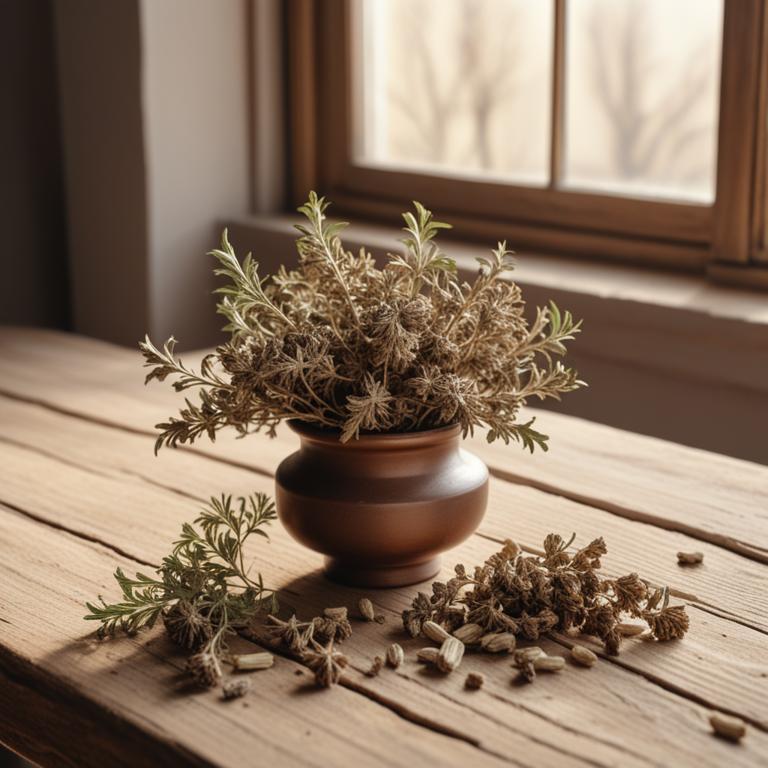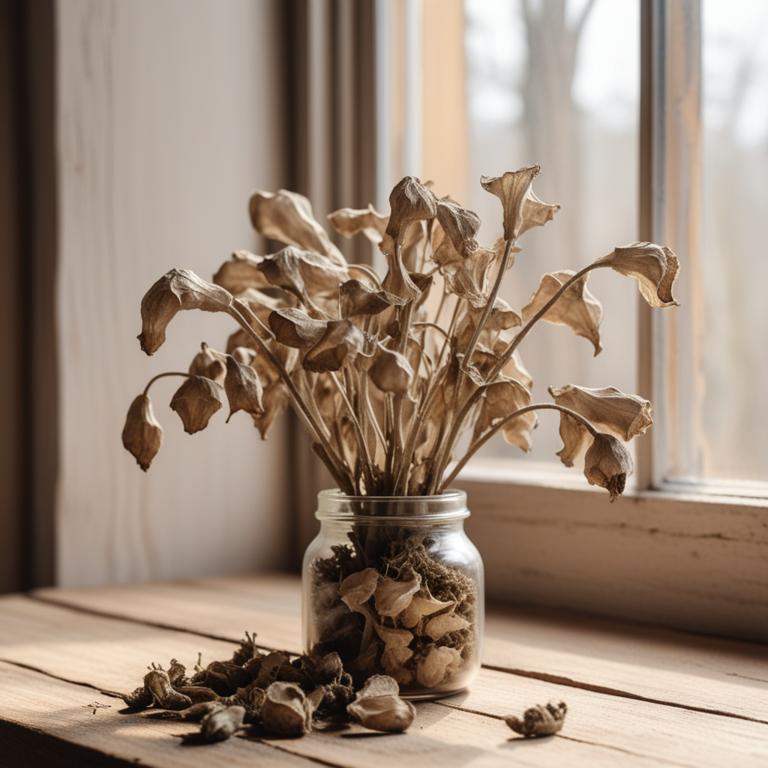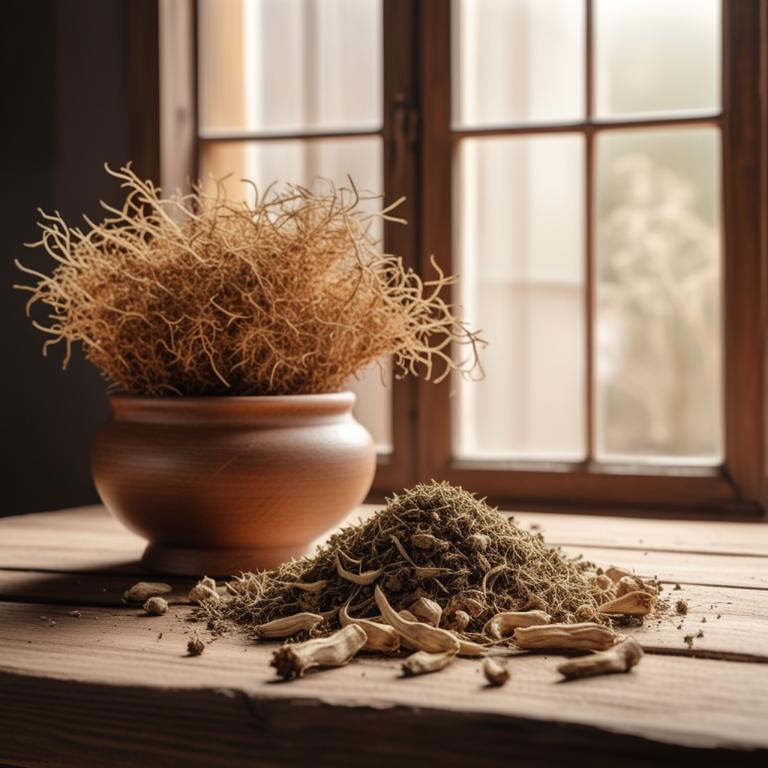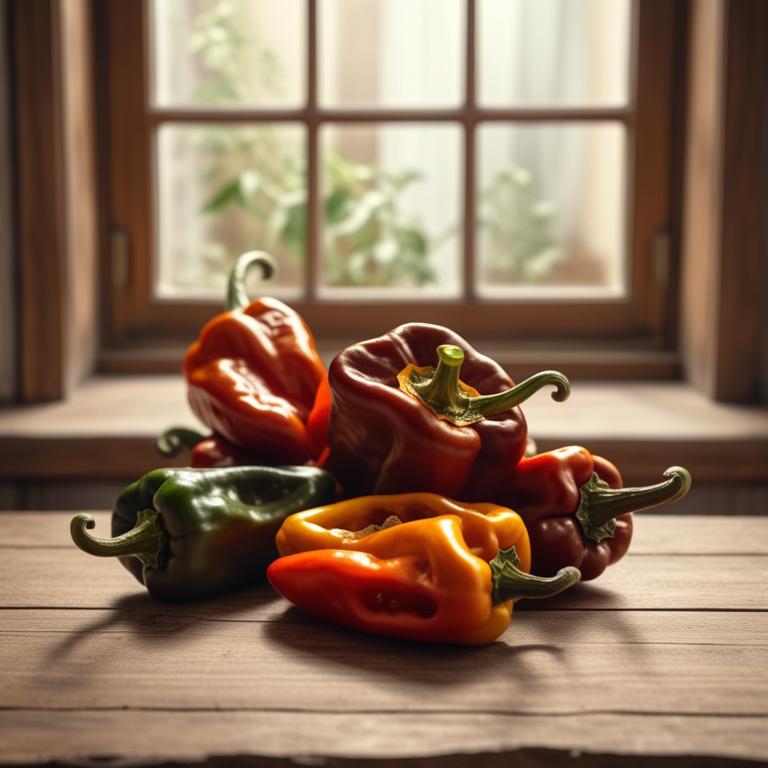Updated: Dec 1, 2024
Knee Pain: A Comprehensive Guide to Medical Causes and Herbal Solutions

Knee pain is a common issue that can make everyday activities a challenge.
It can cause stiffness, swelling, and limited mobility, making it difficult to walk, climb stairs, or even stand for long periods. Knee pain can also affect your mood, causing irritability and fatigue. The causes of knee pain can be varied, including injuries, overuse, obesity, and certain medical conditions like arthritis. To alleviate knee pain, some people turn to herbal remedies. One of the most popular herbs for knee pain is turmeric, which contains a compound called curcumin that has anti-inflammatory properties.
Ginger is another herb that has been used to reduce pain and inflammation in the knees. Willow bark, which contains salicin, a compound similar to aspirin, is also used to relieve knee pain. Herbal teas and infusions are popular preparations for knee pain relief. Drinking turmeric tea or ginger tea can help reduce inflammation and ease pain. Some people also use topical creams or oils, like arnica or capsaicin, to apply directly to the affected area.
Additionally, supplements like glucosamine and chondroitin, which are often combined with herbs like turmeric and ginger, can help promote joint health and reduce knee pain.
Table of Contents
What are the causes of knee pain experienced by individuals?
The main causes of knee pain are often related to injuries or wear and tear on the joints.
One common cause is Osteoarthritis (OA), a condition where the cartilage in the knee wears down due to age or overuse, causing bones to rub against each other and cause pain. Another cause is Iliotibial Band Syndrome (ITBS), which occurs when the IT band, a ligament on the outside of the thigh, rubs against the knee, causing friction and pain. Knee injuries can also cause pain. Medial Collateral Ligament (MCL) sprains occur when the MCL, a ligament on the inner side of the knee, is stretched or torn, usually due to a blow to the outside of the knee.
This can cause pain and swelling on the inner side of the knee. Lateral Collateral Ligament (LCL) sprains happen when the LCL, a ligament on the outside of the knee, is stretched or torn, often due to a blow to the inner side of the knee, causing pain and swelling on the outside of the knee. Meniscus tears are another common cause of knee pain. The meniscus is a cartilage pad in the knee that cushions the joint and absorbs shock. When the meniscus is torn, it can cause pain, especially when twisting or bending the knee.
This often occurs due to sudden stops, awkward movements, or direct blows to the knee.
What benefits are associated with the use of herbs for knee pain?
Using herbs for knee pain can be a great option for people who want to manage their discomfort naturally.
One of the main benefits is that herbs can help reduce inflammation and swelling in the knee joint, which can be caused by conditions like arthritis. This can lead to a significant decrease in pain and discomfort.
Herbs can also improve circulation and reduce stiffness in the knee, making it easier to move and perform daily activities. Some herbs have anti-oxidant properties, which can help protect the knee joint from further damage and promote healing. Additionally, herbs can be used topically, which means they can be applied directly to the affected area to provide fast relief from pain and discomfort.
This can be especially helpful for people who have trouble with oral supplements or prefer a more targeted approach.
Which herbs are the mainstay for treating knee pain medically?
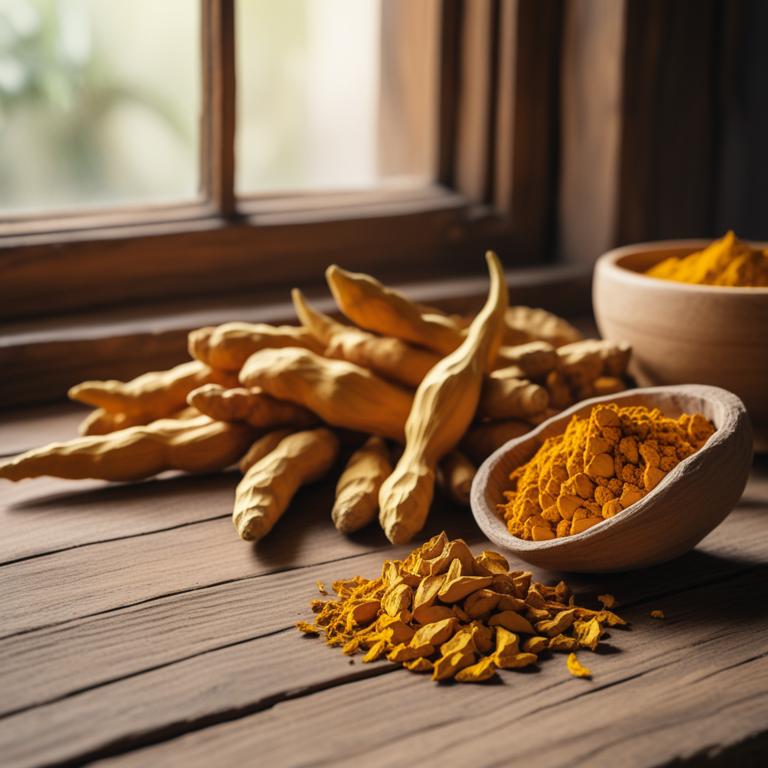
Herbs have been used for centuries to help with knee pain, and for good reason.
One of the key herbs is turmeric, or Curcuma longa, which contains a powerful compound called curcumin. This compound has potent anti-inflammatory properties that can help reduce swelling and pain in the knees. Another herb that's often used is ginger, or Zingiber officinale, which has anti-inflammatory properties as well. It can also help reduce stiffness and improve joint mobility. Licorice root, or Glycyrrhiza glabra, is another herb that's often used to help with knee pain. It has anti-inflammatory properties and can also help reduce swelling and pain.
Cayenne pepper, or Capsicum annuum, contains a compound called capsaicin, which can help reduce pain by blocking the production of a chemical called substance P. This chemical is involved in transmitting pain signals to the brain. Yarrow, or Achillea millefolium, is another herb that's often used to help with knee pain. It has anti-inflammatory properties and can also help reduce swelling and pain. These herbs can be used in different ways to help with knee pain. They can be made into teas, capsules, or topical creams and ointments. They can also be added to foods and drinks to help reduce inflammation and pain. It's worth noting that while these herbs can be helpful, they should not be used as a replacement for medical treatment.
If you're experiencing knee pain, it's always best to talk to a doctor or a healthcare professional before trying any new remedies.
What are the top herbal remedies for knee pain?
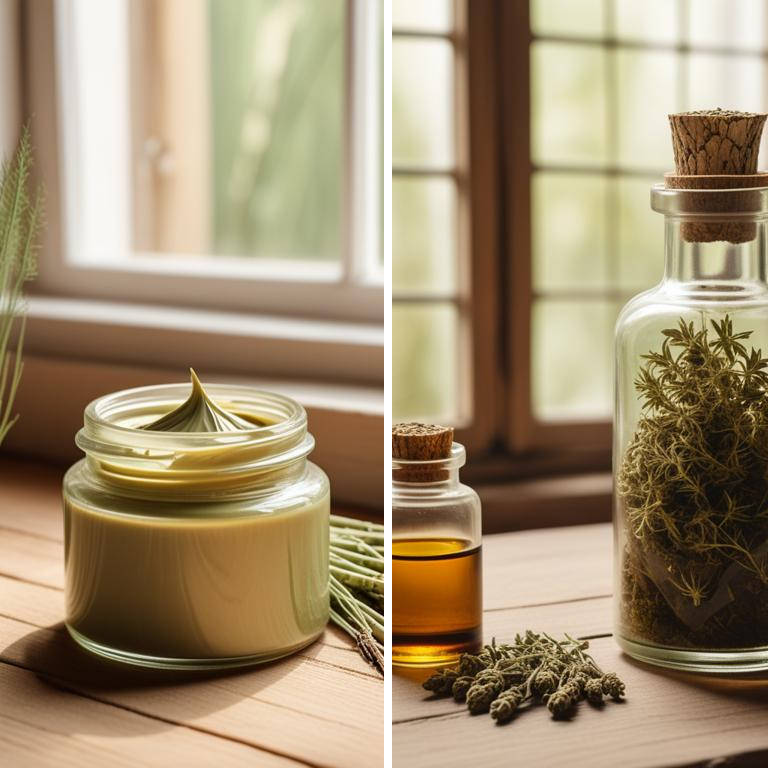
Herbal preparations can be a great way to alleviate knee pain naturally.
One of the most effective ways is through a decoction, which is a liquid herbal tea made by steeping herbs in hot water. Decoctions are good for knee pain because they allow the active compounds in the herbs to break down and become easily absorbed by the body. Herbal capsules are another option for knee pain. These are small pills made from dried and powdered herbs. They're convenient to take and can be easily added to your daily routine. The herbs inside the capsules can help reduce inflammation and ease pain in the knees. Herbal creams are topical preparations that can be applied directly to the affected area.
They work by penetrating the skin and delivering the active compounds of the herbs directly to the site of pain. This can provide quick relief from knee pain and discomfort. Herbal tinctures are liquid extracts of herbs that can be taken sublingually (under the tongue) or added to food and drinks. Tinctures are good for knee pain because they're highly concentrated and can be easily absorbed by the body. They're also versatile and can be used in a variety of ways. Finally, herbal salves are topical preparations that are similar to creams but are thicker and more oily. They're often used to relieve pain and inflammation in specific areas, such as the knees. Salves can be applied directly to the affected area and can provide long-lasting relief from knee pain.
These herbal preparations can be made from a variety of herbs, including ginger, turmeric, and willow bark, which are all known for their anti-inflammatory properties and ability to relieve pain.
Additional Resources:
What herbs are not recommended for people with knee pain?
If you're experiencing knee pain, it's best to be cautious with certain herbs that might make things worse.
Ephedra sinica, for example, is often used to boost energy and improve circulation, but it can actually increase blood pressure and heart rate, putting extra strain on your joints. Angelica sinensis, also known as dong quai, may be beneficial for women's health issues, but it can also cause blood thinning and worsen bleeding disorders - which could be a problem if you're already experiencing joint pain.
Valeriana officinalis, or valerian root, is often used to calm the mind and body, but it can also cause drowsiness and interact with certain medications that you might be taking for your knee pain. Echinacea purpurea is often used to boost the immune system, but it can also cause inflammation in some people, which could exacerbate your knee pain.
Ginkgo biloba may improve blood flow and memory, but it can also increase the risk of bleeding, especially if you're taking blood-thinning medications or have bleeding disorders.
FAQ
Are there any specific herbs that can prevent knee pain?
Turmeric and ginger are herbs that may help reduce knee pain.
Turmeric contains a compound called curcumin, which has anti-inflammatory properties that can ease swelling and discomfort. Ginger, on the other hand, has been shown to have pain-relieving properties that can help alleviate knee pain.
Some people find relief by adding them to their meals or drinks.
Is it safe to use herbal remedies for knee pain during pregnancy?
While some herbal remedies may help with knee pain, it's essential to be cautious during pregnancy.
Some herbs, like ginger and turmeric, have been used safely by pregnant women, but others, like evening primrose oil and blue cohosh, can cause problems if not used correctly.
Always check the label for instructions and warnings.
Are there any herbs that can reduce the frequency of knee pain?
Turmeric is an herb that may help reduce knee pain.
It contains a compound called curcumin, which has anti-inflammatory properties that can help soothe and calm the joints. Ginger is another herb that can have a similar effect, possibly due to its anti-inflammatory and pain-relieving properties.
Some people find that consuming these herbs in tea or supplement form helps alleviate knee pain.
Related Articles
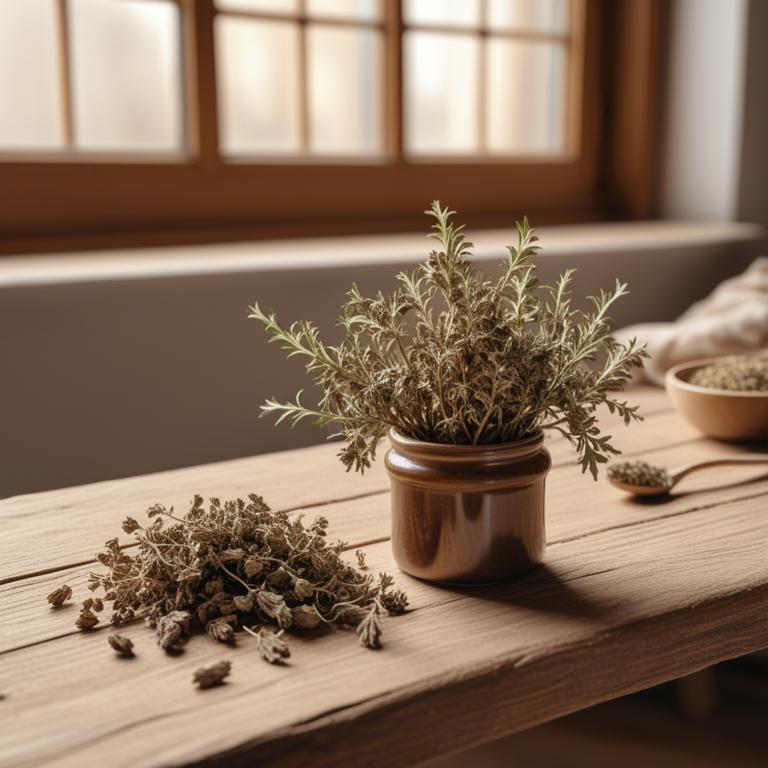
Bone Health: A Comprehensive Guide to Causes and Herbal Preparations
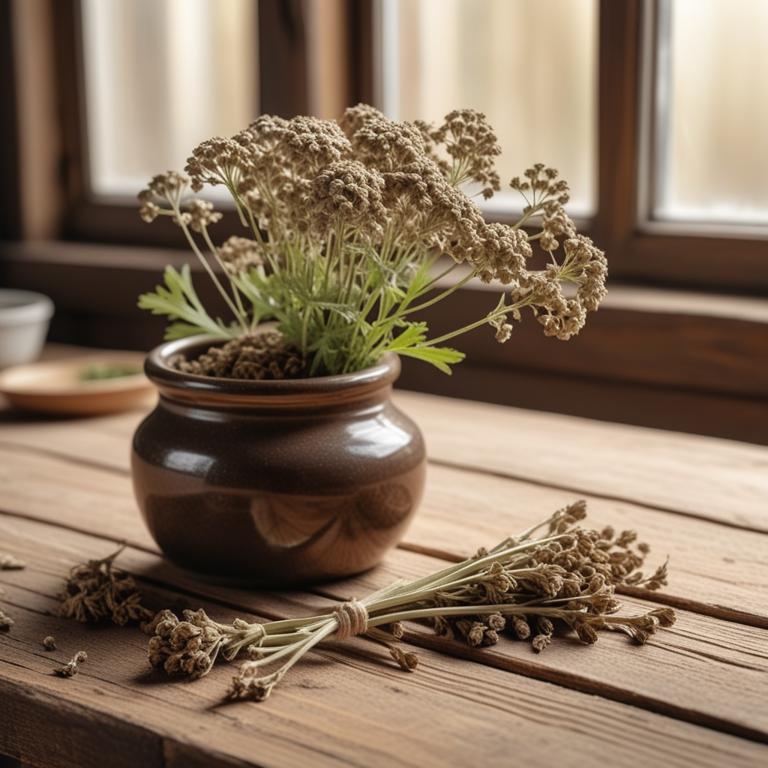
Understanding and Treating Leg Cramps with Medicinal Herbs
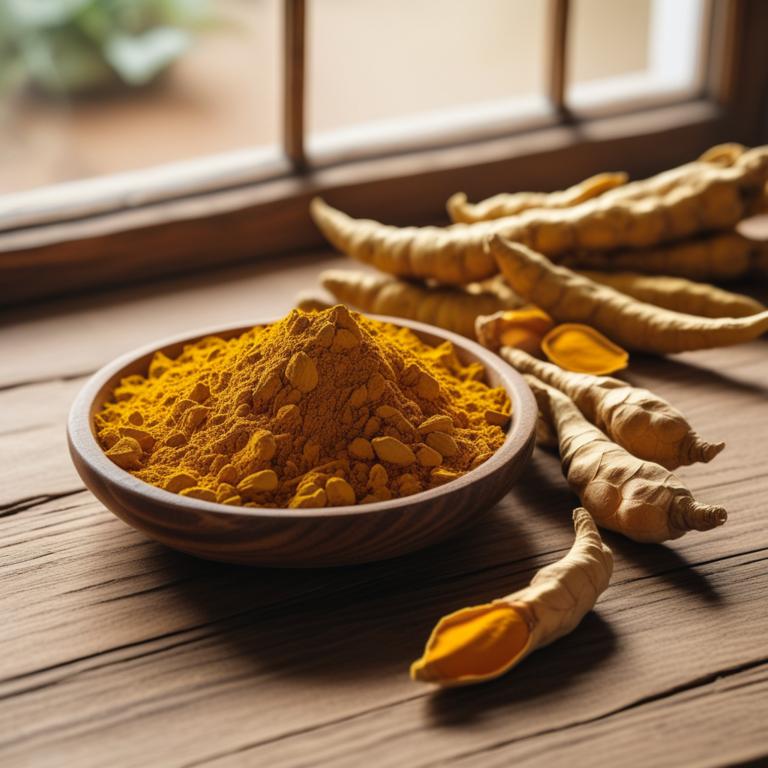
Causes, Symptoms, and Herbal Preparations for Plantar Fasciitis
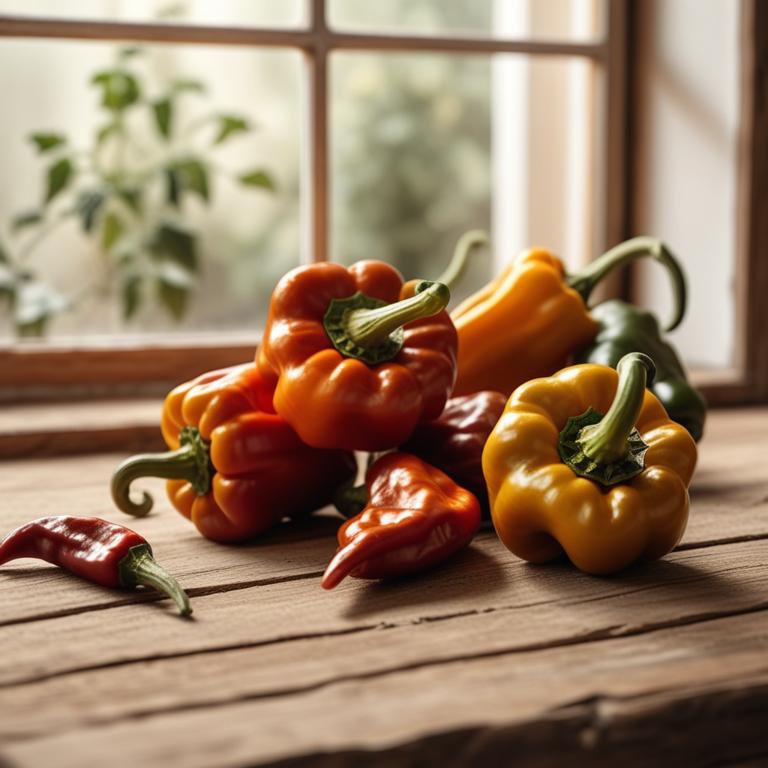
Ankylosing Spondylitis: Causes, Medicinal Herbs, and Natural Supplements for Joint Health
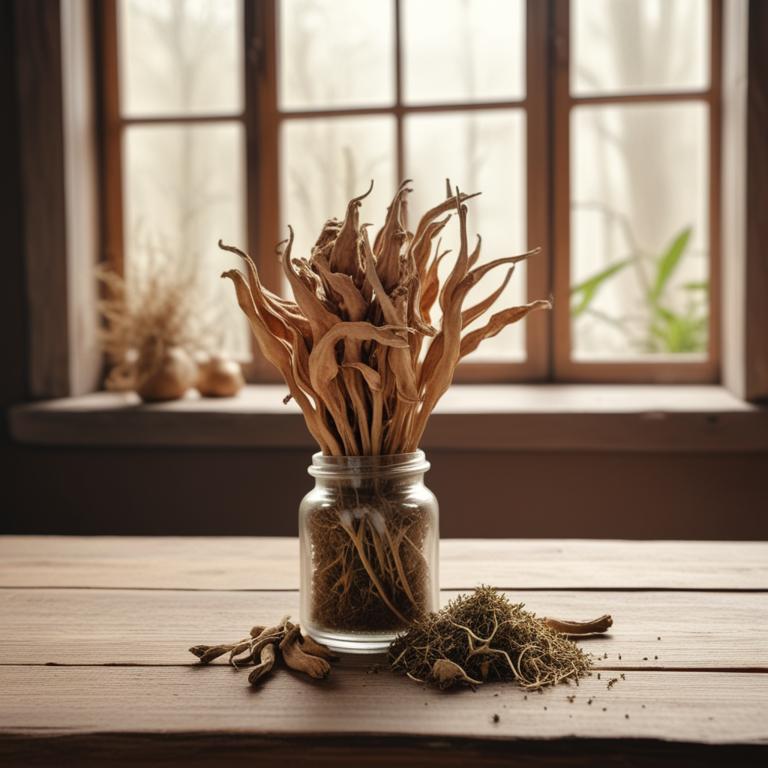
Tendinitis Relief: Exploring Medicinal Herbs and Their Preparations
